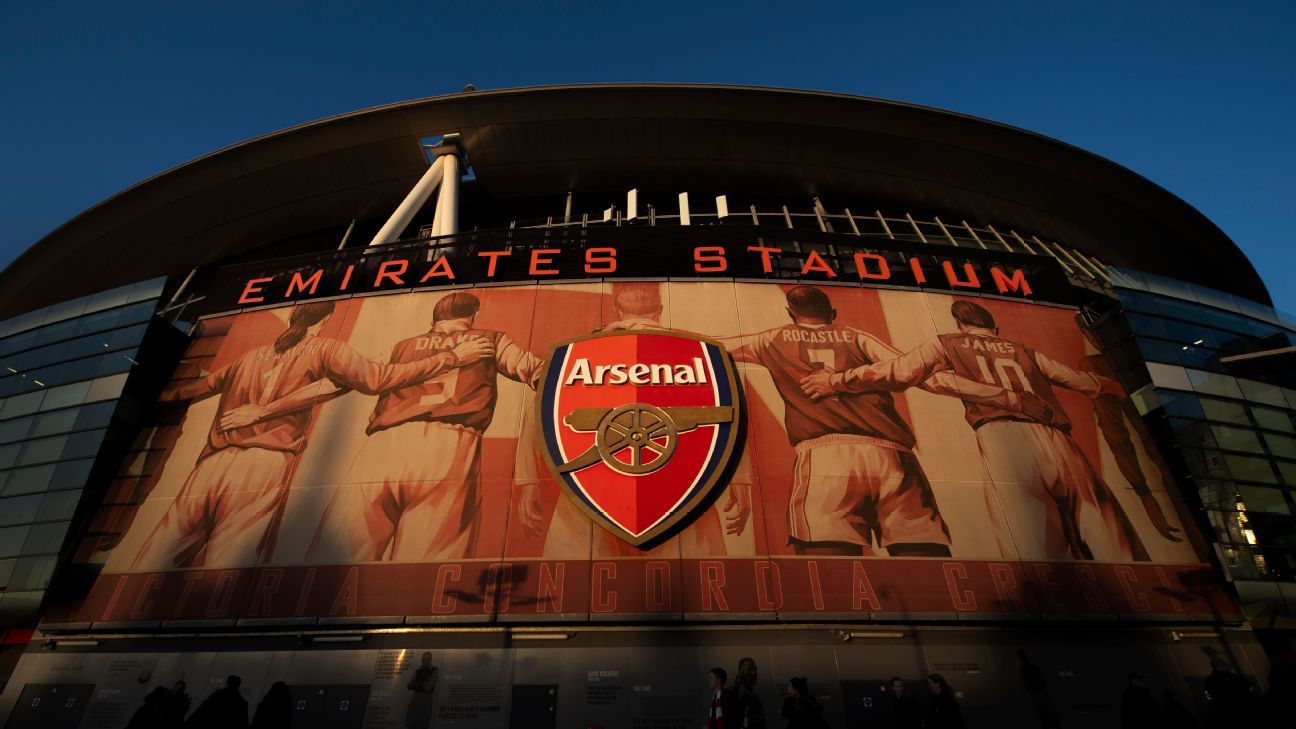Products You May Like
Arsenal have cited the “material impact” of COVID-19 after announcing a post-tax loss of £47.8 million for the year ending 31 May 2020.
The club claim the pandemic cost them £35m during this period as a result of lost matchday revenue, the deferral of broadcasting revenues into the next financial year following the three-month hiatus in games and a shortfall in commercial income.
– Stream ESPN FC Daily on ESPN+ (U.S. only)
– Notebook: Breaking down top clubs’ hopes of signing Haaland
That figure was offset by cost savings of £19m, including an initial 12.5% wage reduction agreed by the first-team squad.
The accounts also show exceptional costs totalling £10.4m, essentially the cost of sacking Unai Emery in November 2019 and replacing him with Mikel Arteta.
Significantly, the accounts do not include “Project Restart,” Arsenal’s summer spending — which included a £45m outlay on midfielder Thomas Partey, or the ongoing effects of an absence of fans during the 2020-21 season.
“The impacts of the pandemic have extended into season 2020-21 and are ongoing,” read the strategic report. “Matches continue to be played without fan attendance and consequently the club is operating without one of its key revenue streams.
“Throughout the pandemic, the Group has moved rapidly in making the decisions required to proactively manage and mitigate risk across all areasd of its operations and, where possible, to provide appropriate support to its community and stakeholders.
“Since the year end the group has refinanced its stadium finance bonds and undertaken a range of cost-cutting measures. These steps will ensure the club is well placed to respond once the situation starts to improve.
“The financial challenge remains significant but the club continues to have options available to it alongside the unwavering support and commitment of its ownership, Kroenke Sports & Entertainment.”
One positive was an increase of £31.4m in commercial revenue to £142.3m driven by a renewal of the club’s partnership with Emirates and a new Adidas kit partnership.
Arsenal made 55 non-playing staff redundant in August and later took out an additional £120m loan from the Bank of England to help with short-term cashflow issues which is due to be repaid by the end of May.
The club were reliant on making a profit from player trading to mitigate the losses during this period. They raised £60.1m, chiefly through the £40m sale of Alex Iwobi to Everton. Their cash balance closed at £110m — down from £167m — with the club again citing the impact of COVID-19 “and the exclusion of the normal season ticket renewals process.”
The overall wage bill stood at £234.5m but since this period, the Gunners have offloaded several senior players including Mesut Ozil — the club’s top-earner on £350,000-a-week — Sokratis Papastathopoulos, Sead Kolasinac and Shkodran Mustafi.
Although Arsenal recorded a £27.1m loss in the previous year to May 2019, that was the first overall deficit during a trading period since 2002.
